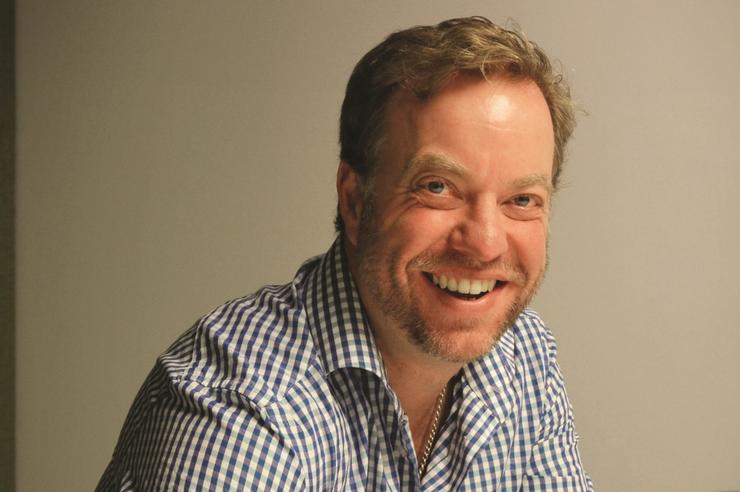
Yellowfin founder, Glen Rabie
Australian start-ups making it big overseas is an all too familiar narrative.
The strong pull of Silicon Valley, with its deep-rooted entrepreneurial spirit and strong venture capital (VC) cash flow, continues to tempt local innovators away from Australian shores.
As a result, the ‘brain drain’ anomaly has lead to rising concern within the local tech community.
In response, Prime Minister Malcolm Turnbull pledged to ensure Australia will become ‘a national culture of innovation and of risk-taking’ at the launch of the $1.1 billion Innovation Agenda in December 2015.
Similarly, VC fund, SparkLabs Global Ventures, recently affirmed the need to ramp up cash flow for the startup scene, as there is simply ‘not enough money to help companies grow’, as reported in The Australian.
Whilst it is positive that the nation plans to hone in on supporting local start-ups, Yellowfin chief executive, Glen Rabie, believes the real complexity lies inherently in Australia’s business culture.
“I think it comes down to an inherent conservatism,” he explained.
“The Australian market is more risk-averse, and so the opportunity to get early adopters for a product in Australia is lower. In the US, everyone is jazzed about people starting a new business.
"It’s deemed the best thing that happens to anybody. You are held up as a bit of a hero there. It’s just not the same here.”
Rabie spoke to ARN of his experience founding business intelligence software vendor, Yellowfin, in Melbourne in 2003 - a start-up that excelled overseas in early days.
Describing Australia’s conservative culture, Rabie explained the difficulty in cracking the local market, whereby “people tend not to go out on a limb”.
Having successfully operated in Asia, Europe, and the US, and Australia, the entrepreneur said he came to discover particular cultural nuances of the local market.
“I find it very interesting in Australia, even if you have got a good friend who works in a large financial institution for example - who could influence the sale of your product and adoption into that institution - they won’t do it. It just doesn’t happen in Australia. People tend not to go out on a limb.”
According to Rabie, it was only once Yellowfin made traction in the US and Asia that the Australian market responded.
“They see the types of overseas customers you have, such as banks and governments, and it’s as if you have earned your stripes and seen as 'a real company'. Certainly now, we have that respect in the market, but in the early days it was really tough.”
Rabie said the catalyst for Yellowfin’s global expansion were the Victorian government trade grants offered in 2003. The budding company was given $2,000 on the proviso that Yellowfin would attend an overseas trade show to build the business.
“It doesn’t seem like a lot of money, but in the early days it was a really good way to justify why we should go overseas. That was when we found our Japanese distributor. We now have our own office there with 20 people. That was all done off the back of those kind of government grants that were offered at the time.”
Ironically, since tapping into global markets, Rabie told ARN that Yellowfin has a strong play in multiple governments overseas - just not in Australia.
“There is great difficulty in selling to government in Australia. You have got to be on a procurement panel and the cost is enormous both in time and effort. Essentially, the reality is that a start-up can’t get onto procurement panels.
“We secured heaps of deals in the US with the government there long before we sold to the Aussie government. We are a small market and it doesn’t look in at itself and question how to build something great here.”
Speaking at the CEDA Digital Bytes Series launch in March, Assistant Minister for Innovation, Wyatt Roy, echoed Rabie’s sentiment in that, fundamentally, Australians need to embrace risk and failure.
He claimed it is only after this mind-shift that the Australian government’s ‘ideas boom’ can be realised.
“Australia has work to do. We need to challenge the mindset against risk and failure. Success needs to be celebrated and failure learnt from,” he said.
Building a collaborative community
Rabie explained that fundamentally, more can be done to support the software community in Australia.
“In the US, they do the collaborative community extraordinarily well. A large part of that is the result of the VC funding model where they have a huge portfolio. We just don’t have that same kind of VC community here,” he explained.
“We don’t have the dollars that allows one firm to have 100 companies sitting underneath them. Those 100 companies essentially start dealing with each other and they move the money between each other.
“We should be asking how we can get vendors selling to each other and keep the money in the community and moving around, rather than having to go every man for themselves,” he said.
The local opportunity
According to Rabie, Australians are uniquely placed to specialise in building software companies locally.
The phenomenon of cloud and the ability to sell remotely through technologies such as Skype, means it is a lower cost to start the business in Australia.
“If you are trying to get a start-up off the ground in San Francisco, you have got to pay top dollar for everything. But in Sydney or Melbourne, with the exchange rate, it’s about 30 per cent less in reality.
"This is simply because there is less competition for resources and not as much money sloshing around in a system which drives up wages from a development perspective.”
According to Rabie, the local start-up scene has become more active in recent years as a result of high interest from US venture capitalists in the Australian market.
“The ability to be picked up here and get funding, has been significantly enhanced,” he said.




